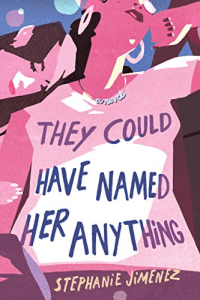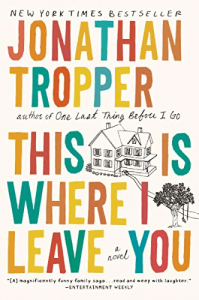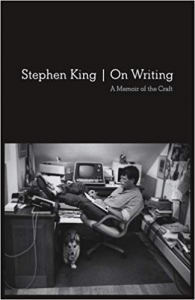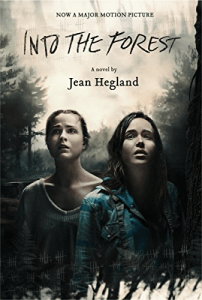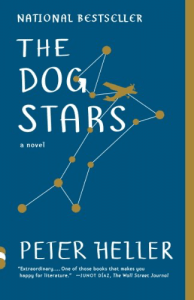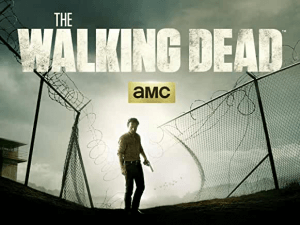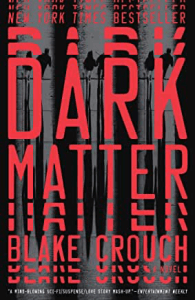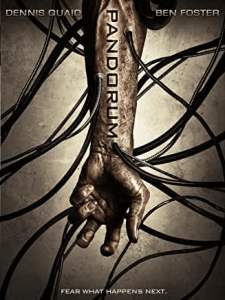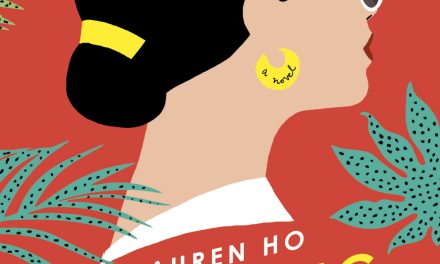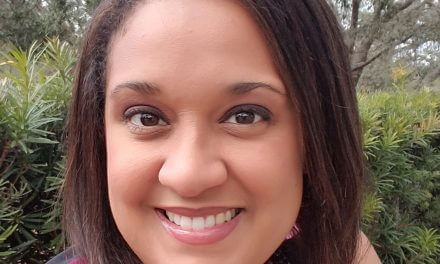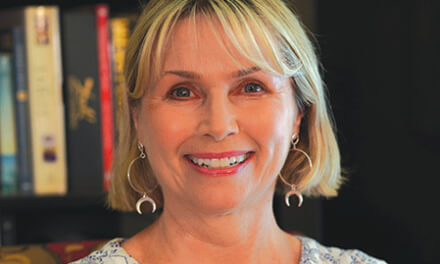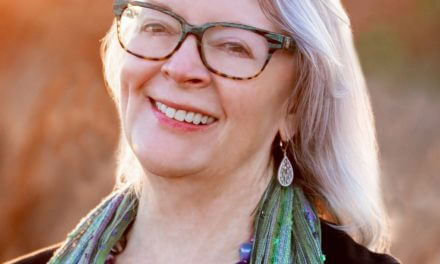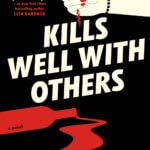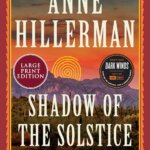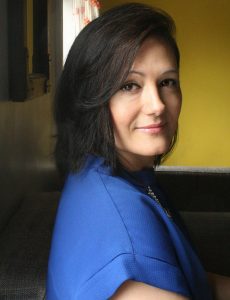
SS: Can you share a bit about your background, Nicole?
NM: I grew up in Northern California and was raised by my Mexican mom and my Norwegian step-dad. But I’ve lived in NYC for the past seventeen years and love it. I went to school for photography and have worked in photography for over twenty years, in fashion, travel and now TV. I currently work at NBCUniversal in the photo department.
SS: Have you always been driven to write? Or did you begin writing in response to a particular stimulus?
NM: At the age of forty, I took a left turn into writing. My mom always wanted me to be a writer but, of course, I had to go my own way. Now I find out my mom was right! The reason I wrote this particular novel was because of a horrible snow storm that hit NYC awhile back. The mayor ended up closing down all transportation as a result. At the same time, a really bad flu was going around my office. I’m a bit of a hypochondriac (like my main character), so I was freaked out about the flu everyone around me was getting and I barricaded myself in my office at work to avoid people as much as I could during that time. One night, during the storm, I had a dream that was essentially the plot of my novel. I’d gone through periods where I closed myself off, becoming a hermit for short periods of time. I wanted to write this book with the idea of, what if doing something that’s probably not a good idea, (like becoming a hermit) actually ended up saving your life? So I tried to create a world where this happened.
SS: One of the things I enjoyed when reading Past This Point, was the plausibility of your story. As a physician, I’ve participated in hospital disaster drills, and your book made me relive those. What in your childhood contributed to you becoming a writer?
NM: When I was five, my mom took me to the library and told me I had to pick a book that was at least 100 pages. The librarian helped me pick out The Boxcar Children. It transported me to another place, and I was shocked that that could happen with just words. My mom wanted me to be self-reliant, so if I didn’t know what a word in the book meant, she pointed to the dictionary and told me to look it up. From that point on, I read books constantly. I think this early start into other worlds definitely sparked a passion for reading and writing.
SS: Writing is undoubtedly a lonely occupation. John Green (The Fault in Our Stars) says writing is a profession for introverts who want to tell you a story but don’t want to make eye contact while doing it. P. D. James (Cover Her Face) says it’s essential for writers to enjoy their own company. Do you see yourself along those lines? Are you a natural loner?
NM: I definitely go through periods where I stay to myself and hibernate in my apartment. It’s one of the reasons I wrote the book the way I did. Living in New York City can make a person long for solitude. The crowds can become overbearing. I’m not sure I ever felt like a loner before moving here, but as the years have worn on, I’ve become more and more so. And as I’ve gotten older, I have become more comfortable in my own company. Having pets also helps in that area, I’m alone, but not really alone.
SS: Do you have a day job? If so, is it a distraction, or does it add another element to your writing?
NM: I do have a day job that is quite time consuming. I work on three networks at NBC, and they all have different processes and needs. It’s a struggle to find time to write, but I try to schedule time in my weekends just for writing. Working in a world of stories on television has helped keep the world of stories in my head evolving and growing.
SS: How long have you considered yourself a writer? Did you have any formal training, or is it something you learned as you went?
NM: Honestly, I’ve only considered myself a writer for the past four years when I started this novel. I did not have any formal training other than writing thesis and research papers at UCLA. I’d had no creative writing training when I started. I’ve since taken several workshops and am constantly honing my craft. But for this novel, I learned as I went. I’m sure I did everything the wrong way. I sent it out to about thirteen friends to read and give feedback. They were all so supportive and helpful. The novel really took shape after hearing all their feedback, and luckily a few agents I’d submitted to also gave me some great critiques.
SS: Do you generally write in one genre? If so, what is it? And what can readers expect from one of your books?
NM: I generally write in the Thriller and Apocalyptic genres. No matter the plot, I will usually delve into women’s issues which are really important to me. Although, I do think men and women alike will enjoy my books as I typically come from a place of plot. I do have a horror novel I’m itching to write, but I have a feeling that’ll be at least two books down the road.
SS: Regardless of genre, what are the elements that you think make a great novel? Do you consciously ensure all of these are in place?
NM: For me, it comes down to a great plot. I’ve read great books that are more character-driven, but to grab my attention, I need the plot to really hook me. One of my writing teachers said that most writers come from a place of words, but I come from a place of plot. Secondly, I think you really need well-rounded characters. Even if your characters are unlikable, they need to be dimensional, not all bad or all good. In real life, people are a mix of both, and realistic characters should incorporate all sides to round them out. I am conscious of character development as I write, but mostly, I tackle that issue in editing with a keen eye on multi-dimensional characters.
SS: What are you working on at the moment?
NM: Currently, I’m co-writing a thriller with my writing partner that taps into the current true crime trends. It’s our first attempt at co-writing, and we are figuring it out as we go. It’s been very exciting, though.
SS: Who do you consider to be your biggest and best mentor and/or inspiration?
NM: Without a doubt, my mom. She is the strongest person I’ve ever met. She had to help raise her four brothers and sisters at a very young age as her mother had passed away. Then she was a single mom raising three kids on her own. She had no college education but persevered and had a successful career. She’s been a great role model on how to be tenacious and self-reliant, two traits I think are necessary to being a successful writer.
SS: If you could have been the original author of any book, what would it have been and why?
NM: This is an easy one. The Handmaid’s Tale. Not only is the writing incredibly beautiful, but the concept is so inventive and truly terrifying. I’m not one for lengthy descriptions and tend to skim over them as a reader. But when I read The Handmaid’s Tale, I gobbled up every description and every word. It’s such an inspiring and well-written book. My second choice would be 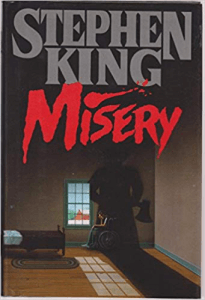
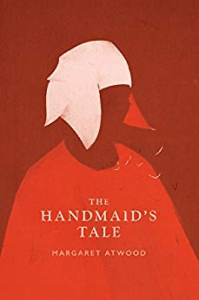
SS: When you are creating a story, do you avoid reading books in the same vein so as not to be influenced by others, or do you seek out all possible variations for maximum inspiration?
NM: I try to read anything in the same genre/topic that I can get my hands on. I know it’s almost impossible to come up with something original these days, so I like to see what others have done so I can do it differently.
SS: I tend to do the same thing as well as copious research before I ever start writing. What writer would you be most thrilled to hear wants to meet you?
NM: I keep tooting my horn about Margaret Atwood, but it would be her. Her books have inspired me so much, if she wanted to meet me, I’d probably sob happy tears!
SS: Do the parts of your story that move your readers most move you as well? Or does your special position as Creator give you a different ear for the highs and lows of the tale?
NM: They move me as well. There are a couple of scenes in my book that seem to make everyone cry. When I was writing those scenes, I was at work, writing during my lunch hour. My intern came over and asked if I was ok. I hadn’t realized I was crying while writing those scenes! At this point, I’ve read my book so many times that I don’t have the same response, but I’m still moved by the journey my character, Karis, goes through.
SS: What is a fun or strange source of inspiration that ended up in your book (a name, location, line of dialogue, etc.)?
NM: Actually, my main character’s name, Karis, came from my photography background. I shoot a lot of nudes, and I watched a documentary about Edward Weston and his relationship with Charis Wilson who was his nude muse. His nudes were some of the first that were seen as art rather than pornography, and they are incredible. But Charis really stole the show in the documentary, and she stuck with me. I originally had her name spelled Charis, but some people had a hard time figuring out how to pronounce it, so I changed it slightly to avoid confusion.
SS: I was a photographer in a former life as well, doing travel, then later, medical photography. I love Edward Weston and Ansel Adams. I also love those WPA photographers and recently bought a Dorothea Lange print. Let’s talk about your writing process. What would a fly on the wall see if he watched you while you are writing?
NM: He’d see my dog and maybe a cat or two snuggled up around me. I almost always have a cocktail or glass of wine next to me. I’m a tense person (as in my body and mind are always tensed up). I’ve found that having one drink loosens me up both physically and mentally. The TV will be tuned to Youtube, where I have a playlist just for writing. I start out with an inspirational song, one that pumps me up to write. I have a different song for each project I’m working on. And he’d see my niece and I bouncing words, sentences and concepts off one another. She’s in school at Hunter College for creative writing. It’s nice to have another writer in my own home.
SS: Do you hide any secrets in your books that only a few people will find?
NM: I didn’t in my first novel, but the one I’m co-writing now, I did slip in a horror movie thread throughout the book. I’ll be interested to see if anyone actually notices it. I think you’d have to be a serious horror movie lover to catch it. But I’ll be thrilled if someone does.
SS: Over time, what would you say has improved significantly in your writing?
NM: The words on the page. I’m a pretty straight-forward writer. But after taking several workshops, I’ve been paying more attention to the rhythm and assonance of my sentences. I’ve worked on choosing words that do double duty and carry more weight than a more simple word can. This is the area that I was hoping most to improve, and I can definitely see it in my more recent work.
SS: What are you currently reading?
NM: I’m reading Stephanie Jimenez’s They Could Have Named Her Anything. Stephanie is also a debut author, and I’ve had the pleasure of meeting her and going to a few readings. I’m about half way through. It’s a really beautiful book.
SS: I’ve read that too and enjoyed it. Have any new writers grasped your interest recently?
NM: Absolutely! A couple of years ago a friend from my book club recommended Jonathan Tropper’s This Is Where I Leave You. It’s not the normal genre I read in, but from the description, I picked it up and inhaled the book. Since then I’ve been reading everything he writes. I love his tone, characters and stories he puts together.
SS: Do you read your book reviews? How do you deal with bad or good ones?
NM: I do not read my reviews except the early ones that came in, so I had blurbs to use. My best friend is my review filter. Once a week she goes onto my Amazon page and reads my reviews. If there’s something she thinks might crush my soul, she doesn’t tell me about it and instead, gives me the positive review highlights. I’m slowly building my writing confidence so hopefully one day, I can read all my reviews and be okay.
SS: How did publishing your first book change your process of writing?
NM: After going through so many rounds of editing, I now write through the lens of my editors. I’m constantly asking myself, “Is there a pacing issue here?” or “Do I need to clarify this more?” And the one that has really stuck with me is repetitive words. My editors highlight words that appear multiple times in the same section so I can go in and break it up. As I write now, I’m always on the lookout for repetitive words.
SS: I use Autocrit to find those pesky repetitive words and also have the computer read my work back to me a chapter at a time to find those places where words hitch up instead of flowing smoothly. Now, let’s talk about the aftermath of publication. What’s something memorable you’ve heard from your readers/fans? What’s been the best compliment?
NM: When I first got the email from my agent that she wanted to sign me, she said something about my book making her feel creepy and clammy because she could see this happening in New York City. I’ve had a few others text me while on the train saying there were now paranoid about getting sick from the people around them. That was exactly what I was going for, so hearing that makes me very happy.
SS: Name five things you wish you’d known before you published your first novel.
NM: 1) The publishing industry is very slow. 2) When you get critique, don’t respond for a day or two if you can. Sit on it. Then see how you feel. Most of the time, I found that I had to admit they were right. 3) I wish I’d known that writing in an under-represented genre would be a hindrance rather than an asset. 4) As a writer with any publisher, you will have to do a fair amount of marketing and publicity yourself. 5) Imposter Syndrome is real, and it’s ok to hate your work, because chances are, the next time you read it, you’ll love it.
SS: At what point did you come up with the title? Did your publisher change it?
NM: The original title was Only the Lonely. I still love that title and have been using it somewhat in my marketing materials as a tagline that reads, “Only the lonely survive.” My agent wanted to change it, so we submitted it as The Remnants, which I also love. But my publisher ultimately wanted a title that conveyed more of the apocalyptic nature and wasn’t the title of another recent book. We both ran through lists and lists of potential titles before landing on Past This Point. It has definitely grown on me, and now I love it.
SS: Oooh, I like Only the Lonely, partly because I’m old enough to remember the 1960s song by Roy Orbison, one of my all-time favorites. Can you share with us a bit about the moment when the idea for your novel first popped into your head? Did the idea come to you all at once, or did different pieces of the story come to you over time?
NM: The general plot came from a dream. But it was really just a bare bones idea, so as I wrote, I really just let the story come to me. I wanted my characters to drive the plot and was excited to see what they would do next. That may sound strange since I’m the one writing it, but my characters surprised me every time I sat down to write.
SS: Could you say something about your relationship to your fictional characters? How autobiographical do you think your current work is?
NM: In some ways it’s very autobiographical. Her general background, ethnicity, love of horror and animals are all from me. But the parts about being bitter about dating, her dating anecdotes, are basically a mish-mash of all my single friends who are dating in the city in addition to my own.
SS: Are there any books on writing you find particularly useful and would recommend?
NM: Stephen King’s On Writing blew me away. His general view of being a writer really helped me move forward. He includes personal anecdotes wherever possible, which makes it relatable. And his concept of your story being like a buried treasure or artifact that you are slowly brushing all the dirt off of really stuck with me. It’s how I write, and it felt good to visualize it in that way.
SS: I swear almost everyone I’ve asked that question has recommended On Writing. I loved it too as well as The Emotional Craft of Fiction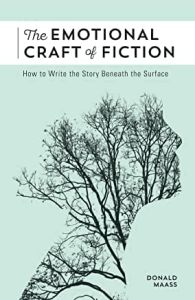
SS: What made you choose to write about a near-future rather than a distant-future time?
NM: For this one, I wanted it to feel like something that could actually happen. I wanted New Yorkers to read it and feel the tension as they themselves rode the subway or walked through the streets. Setting it in present day/near future helped keep that feeling. When describing the setting or actions Karis would go through daily, I’d walk around my neighborhood and write down everything. I’d take the subway and make notes on things I could add to round out the visuals I wanted to evoke. I hope that all of this has infused an immediate tension to the book.
SS: I thought your book, though it had its moments of violence, was a kinder, gentler dystopic book. Why did you take this approach?
NM: I was really interested in the emotional impact of a catastrophic event, rather than focusing on the event itself. I’d read a few books that went this route (Into the Forest by Jean Hegland, The Dog Stars by Peter Heller) and they both had such a huge impact on me as a reader. While I love the action and danger of a book, the internal struggle of the characters became more interesting to me, and how that would drive the plot. When the two young girls appeared in my novel, I hadn’t planned to keep them as main characters. But my best friend, who was reading it chapter by chapter, told me flat out, keep these girls around. And I’m so glad I did. They helped keep my focus on the human side of things even as Karis was dealing with real life-threatening issues on a daily basis.
SS: I was asked to rewrite my genocide book, Hunting the Devil, as a young adult novel. I told the publisher I couldn’t do it without changing the focus of the novel. If you were offered a contract to rewrite your book in another genre, which genre do you choose and why?
NM: I think I’d definitely push it further into horror. I’ve been watching horror movies since I was seven years old and it’s without a doubt my favorite genre. But since it’s my favorite, I’ve been somewhat intimidated by it. I would hate to write a horror novel that was awful and muck up my favorite genre. But I would love to have the opportunity to rewrite this as a full-blown horror and push some boundaries. I think it has a lot of potential for that.
SS: You are transported inside your book for one day. What role do you play? How do you alter the events of the story?
NM: If I was a character other than Karis, I think I’d be a neighbor in the building. I’m more fearless than my main character so I think it wouldn’t have taken me as long to venture outside. I would have found weapons right away and done whatever I could to find a car. I’d be dragging Karis outside and pushing her boundaries left and right.
SS: If given the power to greenlight a summer blockbuster, what unrepresented or “unknown” (to the mainstream, at least) science fiction or fantasy book or series would you love to see on the big screen?
NM: I would absolutely love to see The Dog Stars made into a movie. I think it has everything, a sympathetic main character, two deadly viruses, lots of action paired with moody scenes, romance and of course, a dog!
SS: Which speculative theme do you feel is the most played out at this point: zombies, vampires, or superheroes? Or do you think these still have a leg to stand on?
NM: I think vampires have been done to death. Although I’ll admit, they aren’t my favorite, so maybe it’s just me. Personally, I have to believe something is possible for it to scare/capture me. I just don’t believe in vampires. Zombies are one of my favorite topics in both movies and books, and even though they have been done over and over, I constantly see new ideas surrounding the concept. I didn’t ‘believe’ in zombies until The Walking Dead, and they gave a credible reasoning. Since then, I’ve seen several others create a convincing case for zombies. I don’t think superheroes will ever be played out. I’m not really into superheroes, but I know the general population is. And there are infinite possibilities, so I think there’s still a lot that could be done with superheroes.
SS: Are there any new books or authors in science fiction that have you excited?
NM: Although he’s not new, only new to me, Blake Crouch is a really exciting voice in science fiction. I read his book Dark Matter in two days. Some really interesting and thought-provoking concepts.
SS: The development of artificial intelligence (AI) is a recurring theme in sci-fi. Do you think AI could be a benefit to humanity, a danger (as many believe), or something more ambiguous?
NM: At this point, I think it’s too soon to tell. It could go either way. But it’s an inevitability, for sure. Technology is evolving exponentially and will slowly take over most jobs. In some ways, AI is going to be an amazing help, especially for people with disabilities. My mom is legally blind, and I can’t wait for self-driving cars to be more mainstream and safe for her sake. But I can see the potential for it going the other way. A few movies, namely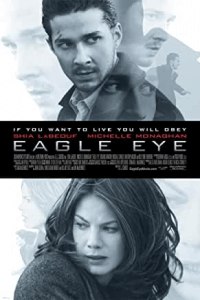
SS: What’s your favorite sci-fi movie? Pandorum
SS: Do you think political statements belong in literature? Would you write a novel that was a political tract?
NM: I do. When I think about the literature and song writing that was present in the 60’s and 70’s, I think those artists and writers were so brave. But it’s definitely harder to do that now, with social media having such an impact on book popularity and sales. It’s really easy to offend people politically and that could potentially tank your book. To write with a political statement in today’s world is incredibly brave. I think in most of my writing, since I try to tackle women’s issues, there is always an element of a ‘statement.’ But it’s subtle and not in your face.
SS: Joanna Russ (The Female Man) wrote, “Not only is female experience often considered less broad, less representative, less important, than male experience, but the actual content of works can be distorted according to whether the author is believed to be of one sex or the other.” Do you wish to comment?
NM: I agree. When I was querying agents, I heard time and time again that women don’t care about the apocalypse. It sounded strange to me because I know that not to be the case. It felt very dismissive of the female experience. I was hoping to expand the genre and make the female experience more relevant to readers. To the second point, I do believe writing outside your gender/race/orientation can be a problem. It can be hard to write something you have very little experience with personally and inevitably, you may offend readers. And when they find out you aren’t part of that group of people, it offends them even more.
SS: There is a website Gender Hacker that attempts to predict whether a writer is male or female. I always come out male, although I believe my books are clearly about the female experience. I think it’s because I’m a fairly succinct writer. Let’s do a quick lightening round, Nicole, and I’ll let you go.
SS: Describe your books in 3 words: Exciting, Tense, Hopeful
SS: Favorite thing about your genre? The tension and excitement of the Thriller genre
SS: Another genre that you would love to write:Horror or Comedy
SS: When writing, are you a night owl or morning person? Strangely, I’m a middle of the day type of person. Not a morning person by any means. I am a night owl, but I don’t like to write at night.
SS: Pantser or Plotter? For this book Panster. But for my next I’m calling myself a Planster. Serial killings need to be mapped out to work.
SS: Book you’re currently reading: They Could Have Named Her Anything by Stephanie Jimenez
SS: Your favorite guilty pleasure: In books: Crime. In TV: The Housewives J
********************
Excerpt from Past This Point:
Loneliness was a different kind of claustrophobia. Knowing there were people on the other side of my walls going about their business had made it much more bearable, as though only my world had stopped. But it had started suffocating me, closing in more every day. I missed the intrusive hum of traffic, voices from the street below, and even my vibrating building, which no longer shook because the trucks had all gone. Those signs of life that I had often cursed for invading my seclusion had grounded me and kept me sane.Without them, I found myself getting stuck on irrelevant conversations I’d had with friends, with co-workers, or with Jack, my mind spinning around them until I had to shake my head and return to the present. I did a lot of sighing as I tried to fill my space with fictitious companions.
I knew it was important to find other ways to keep myself in check. I had a few pairs of lace panties that had grown brittle and abrasive with age. I’d contemplated throwing them out a few times, but something always held me back. Since I had so much time to reflect on minor details, I could see what my hesitation had been. Going through breakup after breakup can make a person emotionally numb as the heart attempts to anesthetize itself against further damage. When I found myself in one of these desensitized states, I reached for the lace panties and wore them. I did it because if I was numb, I wouldn’t feel pain, but I couldn’t feel happiness either. By forcing myself to feel something, no matter how superficial, I was pushing myself to feel again, and maybe it would open my heart up to feel happiness too.
I felt as if the panties had been waiting, biding their time until I’d need them again. Their time had come, but for an entirely new purpose. I hand-washed them in the sink and wore them every day. When I felt my mind start to spiral out of control, I focused on the feel of the rough lace against my skin because it was real, it was there, it was present. They became my talisman, mooring me in reality.
********************
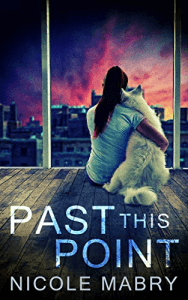
Most links in this article are to Amazon.



